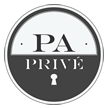The purpose of a cover letter
The cover letter is often the first impression that a prospective employer will have of you. A cover letter should give an employer an idea of who you are, and explain what skills you could bring to the job. You should also explain to the employer why you are interested in their business, and the particular role. Showing a genuine interest helps you stand out among other candidates, so it is important to tailor your cover letters and Curriculum Vitae so they relate specifically to each job application.
Check out our PA Privé careers page for personal assistant jobs, London PA jobs and more.
Think about the following two things:
- What does the employer want to hear?
- What do you want it to say about you?
If you can pin this down to two sentences, you’ll have a clear idea of what you need to say.
Your introduction should answer the following:
- For what position are you applying?
- How did you hear about it (e.g., through a friend, an ad, Career Services, etc.)?
- What is/was your major and degree?
- What is/was your graduation date?
Address your cover letter to the correct hiring manager or executive
Be sure his/her title and the spelling of his/her name are correct.
Font – Use fonts that are easy to read and readily available on most computers (in case the employer scans it) o 10-12 font size.
Margins – A minimum of 1 inch all around.
First impressions count
If your cover letter is filled with spelling and grammatical errors, you can pretty much forget about getting an interview. Check and then recheck your spelling, grammar and punctuation. Get someone else to read it through also.
Tip. When proofreading your covering letter, read it forwards and read it backwards. You’re more likely to spot a spelling mistake if you read word-by-word back from the end. If not, get someone else to proofread your letter for you.
Try to avoid using ‘I’ too much
A page of I did this and I did that is not appealing – it says to the employer that you haven’t thought about them.
Make it personal
A good cover letter can make you stand out from the crowd. If yours is engaging, you have a much higher chance of getting your CV read and thus getting an interview. If you sound genuinely enthusiastic, you stand a much better chance of wowing the hiring manager.
Related post > How to Write a Curriculum Vitae
People need to focus their cover letters on the company they’re applying to, not on themselves.
Know what the job involves
If the job ad is not specific, do some online research or call up the company and ask one or two carefully worded questions about the role. Alternatively, contact someone who already does the job about their day-to-day responsibilities.
Make it concise and compelling
Keep your letter short enough for someone to read in 10 seconds. The ideal cover letter is one side in length, anything longer won’t be read.
Break it down
Make your cover letter easier to read by breaking the text down into short paragraphs.
How to format a cover letter?
Salutation
Letters targeted at the appropriate hiring manager or human resources person are more likely to be read and received positively than letters mailed “To whom it may concern.”
If you do not have a specific contact name, there are a few options for addressing your letter:
- To whom it may concern
- Dear Human Resources Director
- Good morning
- Dear Selection Committee (only use if you know a group is involved in the hiring process)
- Dear Board of Directors (only use if you know this is the group reviewing your application)
The opening paragraph
Lead with why you’re interested in the job. It should explain why you are writing, giving your specific employment interest. Mention how you found out about the position. If it was advertised, refer to the publication in which you saw it. If a contact told you about it, say so.
Second Paragraph
The next section of your cover letter should describe what you have to offer the employer. Make strong connections between your qualifications and the position requirements. Mention specifically how your skills and experience match the job you are applying for. Use several shorter paragraphs or a bulleted list of your qualifications rather than one large block of text.
Third Paragraph
Describe why you think you’d fit into the company – why it would be a good match. Maybe you like their fast growth, know people who already work there or you’ve always used their products. Companies feel good if the candidate feels some connection to them and has a good understanding of how the company works, even before he or she is hired.
Fourth Paragraph
Request actions, for example indicate your desire for a personal interview and that you’re able to meet with the employer at their convenience.
Some job adverts will ask you to include salary requirements, you can choose to ignore this, opting instead to wait until the interview to talk about money, or include a broad salary range. Never talk about salary in your covering letter unless the company indicates to.
Closing paragraph
- Stress action. Politely request an interview at the employer’s convenience.
- Indicate what supplementary material is being sent under separate cover and offer to provide additional information (a portfolio, a writing sample, etc.) and explain how it can be obtained.
- Thank the reader for his/her consideration and indicate that you are looking forward to hearing from him/her.
Follow instructions
Be sure to include any information that was requested in the job posting. If the posting asked for the amount of hours a week you are available to work, be sure to answer that question in the cover letter.
Tailor each cover letter to each job
It is essential that you tailor your covering letter to the organisation you’re applying for. Cover letters that aren’t tailored to the job advertised will go straight in the bin.
Add keywords
Identify keywords within the job description and include them in your cover letter. This will help you when applying through a company’s applicant tracking system (ATS) or talent management system (TMS).
Sell yourself
Explain how you can contribute to the company. Focus on what you have to offer, rather than what you want.
A cover letter is an opportunity to tap into an individual employer’s aspirations and anxieties. Your CV is about you, but employers don’t really care about you. They care about what you can do for them — the problems you can help them solve and the opportunities you can help them take advantage of.
Focus on your strengths and leave out your weaknesses. Overemphasising your.
Research the Company and Their Website
So you can gain insight into the their mission, products, services, and strategic goals. This information helps you answer the inevitable question, “Why do you want to work for us?”
Cover Letter checklist
- My cover letter is in a business letter format.
- My introductory paragraph indicates the specific position or field I am seeking.
- My introductory paragraph motivates the reader to continue.
- I demonstrate interest in the Organization/field.
- I address specific skills, experiences, or education that the organization/field is seeking. ¨I have thanked the reader.
- My contact information is included (phone # and email address).
- I have indicated my next step
- If I read only the first sentence of each paragraph, I get the message of the cover letter. ¨My cover letter “flows” smoothly. Similar skills are grouped in the same paragraph.
- My purpose for sending the letter to the reader is clear.
- My cover letter comes off as personal, warm, and professional.
- I have used active voice and action verbs.
- My sentences are easy-to-read, with varied structure and length
- There are NO spelling or grammatical errors in my cover letter.
- I have signed my cover letter.
Final Thoughts
One last piece of advice: Follow-up is key, so plan on making some phone calls or sending some emails and don’t forget to Include information about your availability for interview
Do You Have more Cover Letter Tips? Share your best tips below.
To get more content and advice like this direct to your inbox, you can now sign up for our b-weekly Career insight update.






